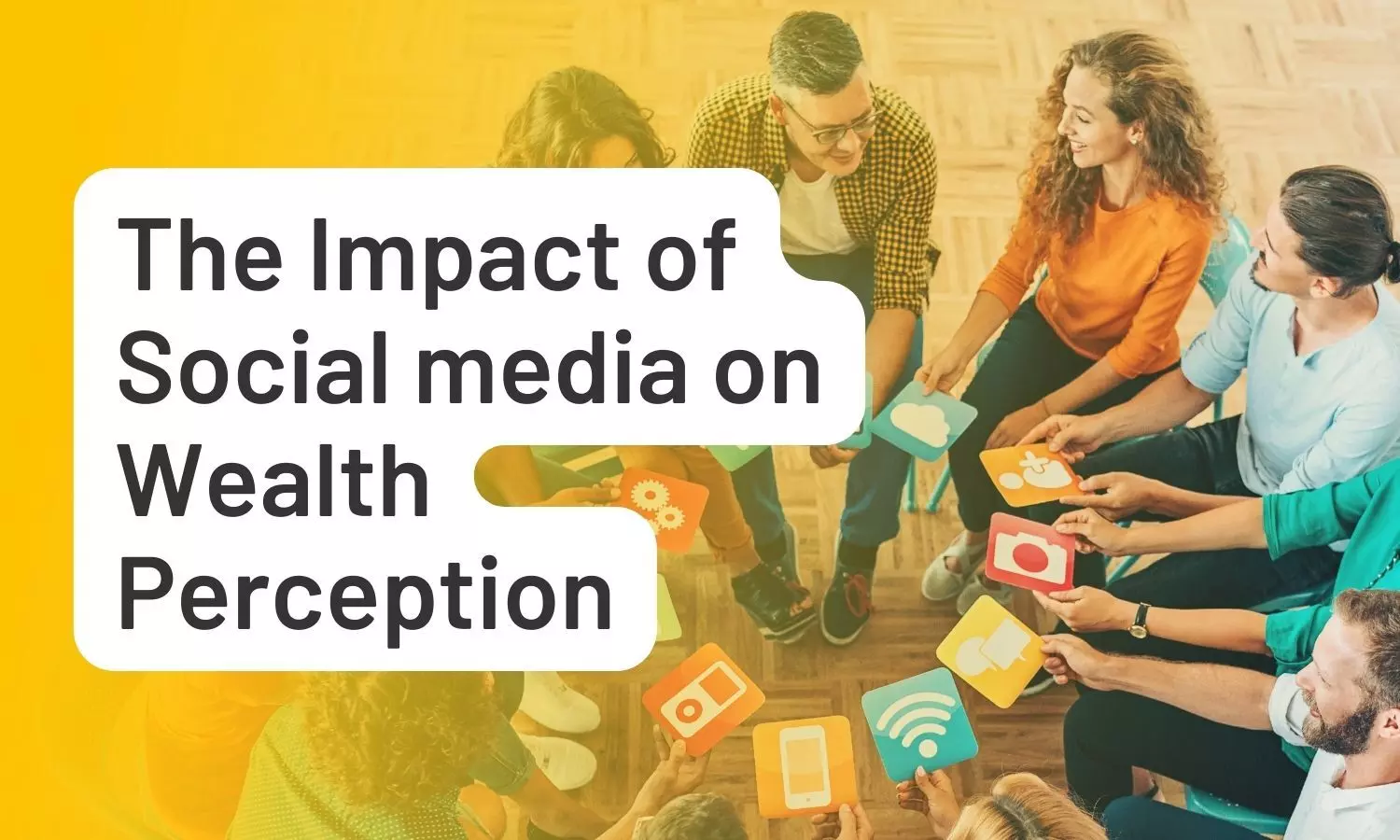The impact of social media on wealth perception among Indian youth
Explore how social media influences wealth perceptions among Indian youth, highlighting both the positive inspirations and negative pressures, along with strategies for healthier engagement in the digital age.
The impact of social media on wealth perception among Indian youth

In today’s digital landscape, social media plays a transformative role in shaping perceptions, especially among the youth. In India, where social media engagement is soaring, platforms like Facebook, Instagram, and Twitter are influencing how young people view wealth, success, and their own aspirations. This article explores the multifaceted impact of social media on wealth perception among Indian youth, examining both its positive and negative effects and offering strategies for healthier engagement.
Understanding Social Media’s Role
Social media serves as a powerful tool for communication and information dissemination. It allows users to connect, share experiences, and gain insights into various lifestyles. For Indian youth, the statistics are staggering: approximately 98.2 million young adults are active on Facebook, while about 70 million use Instagram. This extensive reach has led to profound changes in how they perceive wealth.
Positive Influences
1.Exposure to Diverse Lifestyles:
Social media exposes users to a variety of lifestyles, including those of successful entrepreneurs, celebrities, and influencers. This exposure can inspire aspirations and motivate young individuals to pursue their financial goals. For instance, witnessing the journeys of successful figures can encourage a proactive approach to education and career planning.
2.Networking and Opportunities:
Social media platforms facilitate networking, enabling young people to connect with professionals and potential employers. This connection can lead to job opportunities, internships, and collaborations that enhance career prospects and financial literacy. Many startups and companies use these platforms to scout talent, making it easier for youth to find work aligned with their ambitions.
3.Community Support:
Online communities formed around shared interests can provide encouragement and support. Young individuals can share their achievements, seek advice, and collaborate on projects, creating an environment conducive to personal and professional growth. This sense of community fosters a positive outlook on wealth, where financial success is seen as a collective goal.
The Negative Aspects
1.Unrealistic Standards:
The portrayal of wealth on social media often skews reality, presenting an idealised version of success. This can lead to feelings of inadequacy among youth who may compare their lives to the seemingly perfect lifestyles of influencers. The phenomenon known as “compare and despair” can contribute to low self-esteem and dissatisfaction with one’s own circumstances.
2.Materialism and Superficial Values:
The emphasis on material wealth can shift focus away from intrinsic values such as hard work, creativity, and resilience. Young people may begin to equate self-worth with possessions rather than personal achievements or character. This perception can lead to a culture of consumerism, where the need to showcase wealth becomes paramount.
3.Peer Pressure and Financial Strain:
Social media fosters a culture of competition among peers, compelling individuals to showcase their financial success. This pressure can drive youth to overspend or take on debt to maintain appearances, leading to long-term financial difficulties. The need to project an image of wealth can overshadow the importance of financial prudence.
Mental Health Implications
The intersection of social media and wealth perception has significant mental health implications. Continuous exposure to curated images of affluence can exacerbate feelings of anxiety and depression, particularly among those who feel they do not measure up. Studies indicate that excessive social media use correlates with mental health issues, creating a vicious cycle of comparison and discontent.
The Cultural Context
In India, where traditional values often emphasise community and familial bonds, the rise of individualism driven by social media can create conflicts. The aspirational lifestyles showcased online may not align with cultural expectations, leaving young individuals grappling with their identities. The dichotomy between modern aspirations and traditional values can further complicate their understanding of wealth.
Strategies for Healthier Engagement
To harness the positive aspects of social media while mitigating its negative effects, it is essential to promote a balanced approach. Here are some strategies that can help young people navigate this complex landscape:
1.Encourage Critical Thinking:
Young individuals should be taught to critically evaluate the content they consume on social media. Understanding that many images and narratives are curated can help them maintain realistic expectations and foster a healthier self-image.
2.Promote Financial Literacy:
Educational initiatives focusing on financial literacy can empower youth to make informed decisions. Understanding budgeting, saving, and investing can help them develop a more grounded perspective on wealth.
3.Foster Open Discussions:
Creating safe spaces for discussions about wealth, success, and mental health can normalise conversations around these topics. By sharing experiences and challenges, young individuals can realise they are not alone in their struggles.
4.Set Boundaries for Social Media Use:
Parents and educators should encourage young people to set limits on their social media usage. Balancing online engagement with offline activities can help reduce the negative impacts associated with excessive use.
5.Encourage Authentic Connections:
Young people should be encouraged to form meaningful relationships based on genuine interactions rather than superficial connections. Engaging in community activities, volunteering, or joining clubs can promote real-world connections that enhance self-esteem and well-being.
The influence of social media on wealth perception among Indian youth is profound, with both positive and negative implications. While it offers opportunities for inspiration and growth, it also poses challenges that can distort perceptions of success and self-worth. By fostering critical thinking, promoting financial literacy, and encouraging authentic connections, society can help young people navigate the complexities of wealth perception in the digital age. Ultimately, redefining wealth to encompass not only financial success but also personal fulfilment and community engagement will be essential in shaping a generation that thrives both online and offline.

